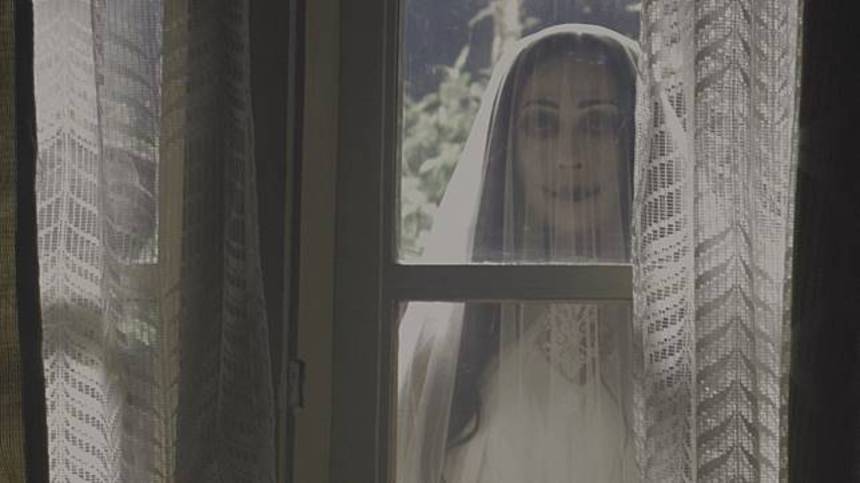Do Not Obey!: Joko Anwar's Pengabdi Setan Remake

(Originally published at https://storyboardfilm.wordpress.com/)
A remake is rarely good news. But when you have a name like Joko Anwar attached to a remake, then there's possibly something to look forward to, or so I thought.
I've been a fan of Joko's work, even though I've not seen them all. He has a knack for building a foreboding atmosphere that really gets under your skin. My very first big-screen experience of a film of his was Kala (2007), and I was very fortunate – or unfortunate, as I later discovered – to have an empty cinema hall all to myself in an afternoon screening. Midway through the film, the mood got to me as I nervously looked left and right, hoping no mysterious being had suddenly appeared next to me.
Later, his first foray into pure horror, the short film Grave Torture (2012), became one of those favourite films of mine that I try not to watch too many times because they creep me out. Grave Torture is a great exercise in the use of sound design to envelop the audience in a shroud of uneasiness. This, I'd thought, was a good gauge of what Joko would possibly do with his Pengabdi Setan remake. That would make it one hell of a film, no pun intended.
Earlier this year, I revisited the original Pengabdi Setan (1980), in anticipation of Joko's remake. Sisworo Gautama Putra's movie about black magic, zombies and a troubled family, while a certified classic, borrowed heavily from Hollywood horror films such as Salem's Lot, The Omen, Night of the Living Dead, and most notably, Phantasm. It also has a strong religious angle, where evil is ultimately trounced by the power of God.
Now, 37 years later, while waiting with bated breath for the remake, I also wondered what Joko would do with the story. Surely, having to struggle for 10 years to realise his dream project, he would be pulling a rabbit out of the hat.
But the result is somewhat a mixed affair.
Firstly, Joko seems to take a cue from Sisworo, and is often blatant with his nods to other horror films. There's even a scene straight out of The Sixth Sense, while the overall influence is clearly Ira Levin's Rosemary's Baby.
But what really blemish the film are the one-too-many Conjuring-like set-ups and a few jump-scares. The worst thing a filmmaker could do is to follow in the footsteps of James Wan whose Conjuring is one of the absolute worst kind of horror films out there, those that shock you with loud sounds and obvious set-ups rather than disturbing ideas.
But to Joko's credit, the film's art direction trumps all else, creating Gothic horror in a Baroque style that's very South Korean. It's beautifully shot and directed, with well-conceived uses of shadows and light, that help to bring the audience into the closed-in world of its inhabitants. Also, for fans of the original, it's fun to see the various, often humorous, nods to it, such as poking fun at the eyes of the undead that are completely white.
While the first three-quarters of the film is a tiring string of obvious set-ups and by-the-numbers scare tactics, the final fourth is where the remake really comes into its own and where it feels more like a Joko Anwar film. This is also where we find out what the real story is.
In the original, it was never really explained why the matriarch of the troubled family at the centre of the story becomes a demonic entity haunting her own family. The film was more concerned with propagating the idea that “Those who do not know God are easily possessed by demons.” That's an actual line from the original.
But in this remake, an entire backstory is gradually revealed about how the mother's past actions have much bigger ramifications than is apparent. Still, it all feels a bit dated, because it backpedals the film to the 1960s and 1970s where spiritualism and the satanic panic were at their peak (even though it's a period film set in 1981). But as an homage to the horror films of yore, it works, just as it does as an analogy of current times.
Good horror stories are always a reaction to something. John Carpenter's remake of The Thing from Outer Space, for instance, updated the old science fiction-horror story to reflect the then-contemporary paranoia surrounding blood diseases such as AIDS.
It's not difficult to see Joko's remake of Pengabdi Setan as a reaction to the contemporary climate in Indonesia, both religious and political. The current environment can be analogous to the microcosm of the family in the film, whose children are the generational products of a system that seeks to corrupt and oppress them. The children seek solace and solution in religion, and – in a total about-turn away from the original, as expected from Joko – it offers them neither. Their only weapon against evil is love, as romantically cliched as it sounds, and defiance, because compelled obedience is oppressive.
In this way, the new Pengabdi Setan is really a horror film about civil disobedience.







